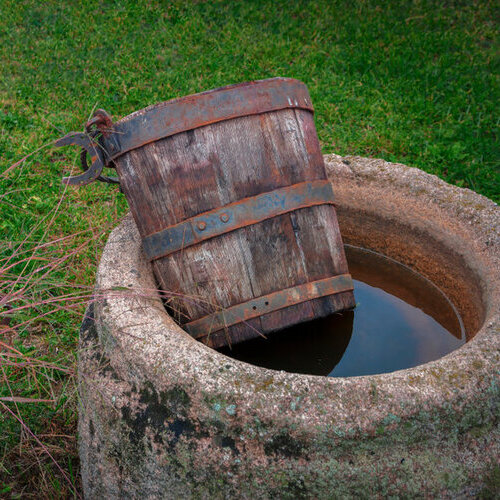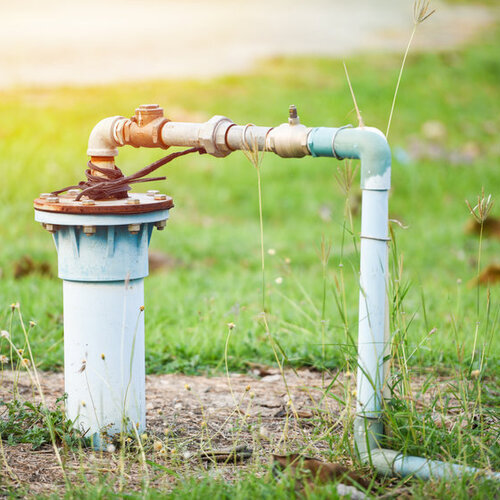
Why Water Purification is Necessary
We’ve talked about water purification in the past, and while that is good for homes in the city or rural areas, it may not be enough for homes on well water. Treatment for those homes usually needs just a bit more water purification and treatment than city homes.
Since our bodies are 60% water, water is a necessity to live. Water is involved in several body functions that are essential in regulating our body temperature and flushing out toxins. Additionally, water protects our body tissues, joints, and spinal cord. Water is also a natural resource, and if you haven’t heard, our natural resources are all under pressure today. With climate change, pollution, and a constant, rapidly growing population, it is hard for those natural resources to keep up with demand. That includes our tap water, unfortunately.
No longer can we assume the tap water coming into our home is safe for consumption. Harmful contaminants have been found in our drinking water and with the chemical, microbiological and physical found in the water sources today, water purification is more important than ever, as is well water treatment.
How does a well water treatment system work?
Before buying a well water treatment system, test the water in your home. This will tell you what and how many contaminants there are if any. Clean drinking water is achieved differently with the different well water treatment options available today. There are well water treatment and filtration systems that filter heavy metals and others that filter bacteria.
Choosing a whole-house filtration system for well water treatment is recommended, and can be any of the following:
- Activated Carbon. This type of well water treatment will essentially filter absorbed contaminants and prevent them from passing on through the filter. This type of system will remove bacteria, ions, lead, and pesticides.
- Resin. A resin filter well water treatment system will remove iron and has a longer lifespan than other filters and will maintain an adequate water flow.
- Reverse osmosis. By the use of pressure and a semipermeable membrane, this well water filtration system removed fluoride and heavy metals but does not remove organic contaminants or pesticides.
- Water ionizer. With an electrical charge, this type of water purification and well water treatment will filter heavy metals and pesticides.
- UV filters. With ultraviolet light, this water filtration system kills bacteria but doesn’t remove other contaminants for drinking water.
- Infrared filters. Using heat and light, this water system softens water, ideal for well water treatment in homes with hard water. It will kill bacteria, but not other contaminants that affect drinking water, making it less than ideal for homes on well water.
Some water purification and well water treatment systems use multiple filters. Like a combination of a UV filter with an activated carbon filter. There are stages that filters use to remove contaminants to get the clean drinking water you want, too.
What is the best treatment for well water?
Most private water wells lack any safety mechanisms that test and maintain the water for drinkability. Chemicals and other substances that are found in well water that can cause harm are:
- Arsenic
- Fluoride
- Manganese
- Nitrates
- Sediment
The three most recommended systems for well water treatment are:
- Activated Carbon Filtration System: This is the most common for filtering material in residential water filters. It eliminates chlorine, lead, VOCs (volatile organic compounds),and other substances often found in well water supply. They will not remove bacteria, dissolved minerals, or nitrates.
- Reverse Osmosis: This system forces water through a membrane that is semipermeable and separates the impurities from the purified water. This is an effective well water treatment for areas with hard water and high mineral content. It will remove nitrates and petrochemicals but does not remove chlorine, pesticides, or radon.
- Water Softener: This will provide well water treatment for areas with hard water and a high mineral count. It can also help plumbing fixtures, pipes, and appliances by removing calcium and magnesium and replacing it with sodium. It will not remove hard metals, microorganisms, or pesticides.
What is a whole house water treatment system?
Instead of filtering water at the point of use, a whole house water treatment system is installed where the water enters the house. In this manner, it is treating all the water that comes in and not just the water where the filtration system is installed.
How can I naturally purify my well water?
With all these high-tech ways of well water treatment and water purification, you may wonder, can well water be treated naturally? We have to remember at one point, the world was cleaner and so was the air and water. Mankind has done a number on the Earth and its natural resources, but yes, there are natural well water treatments:
1. Sunlight will take what looks like clean water and make it cleaner. Use a natural resource to clean a natural resource. Heat and solar radiation can destroy pathogens that cause water-borne illnesses.
2. Boiling water is a camping classic and if you have a pot and stove, you can boil your water clean.
3. Gravity is a viable option for filtering well water. Use a container for water to drain from as you pour it in at the top. Place layers of activated charcoal, sand, and small gravel and as the water pours through those layers, it removes the pathogens.

In Closing
So, now you want to know, “How to remove salt from my well water?” There are well water treatment options that will remove chloride and sodium, like distillation and reverse osmosis. A water well and water purification specialist can be of great help in these areas.
Who installs well water filtration systems? Most plumbers are able to install water well treatment systems and water purification systems. An internet search will give you multiple choices, and you’ll want to explain your situation and needs. If they are not equipped, they can often refer you to somebody.

